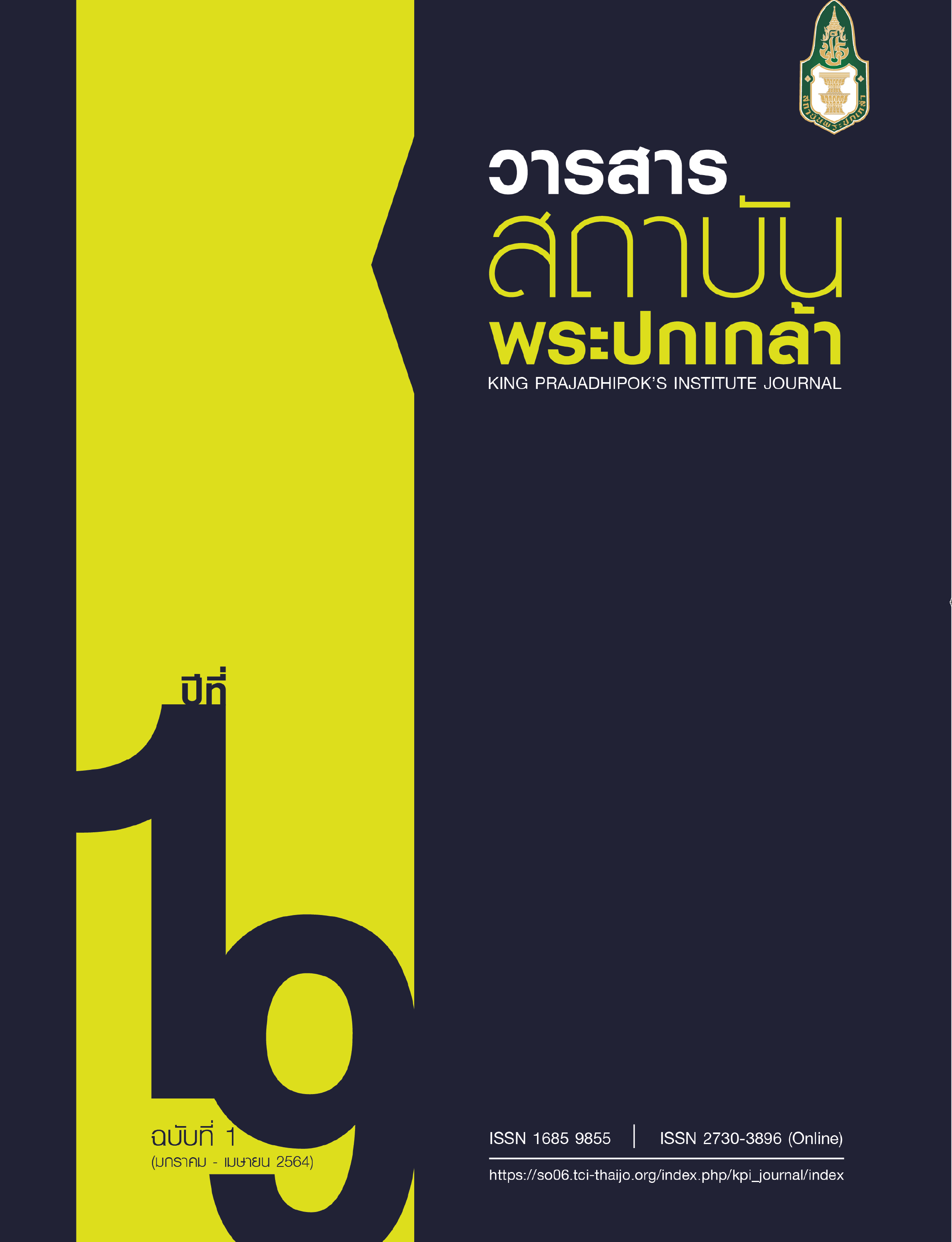Process of Peace Building through Female Roles in the Circumstance of Violence in Asia A Case Study of Aceh Province, Indonesia and Deep South of Thailand
Main Article Content
Abstract
The study "Process of Peace Building through Female Roles in the Circumstance of Violence in Asia” aims at analyzing the female roles in Asia in the resolutions of the violence and conflicts through the peace process. This qualitative research is to raise an awareness in the form of policy proposal to the government and related organizations. The empirical data are applied to this study to form understandings and operations among women's organizations and peace networks in resolving political and gender-based violence.To access the peace process, the researcher includes the case study to gather information through both documents and interviews in the field to learn the experiences, knowledge, and abilities of the women from various organizations working as leaders of the peace process in Aceh, Indonesia and Deep South of Thailand. The study found that women are affected with violence as victims of war and insurgency with weapons. Due to the losses, there is unification of women who have lost family members and those who are affected. These women have also considered the further consequence of violence. For example, the acts of violence will be more common in the area of conflicts where women are bearing the burden of doing both housework and social work.If the operation is run by the state, the female community and organizations will be excluded in decision-making on the direction of the society. Moreover, this research has found a suggestion to organize a female group to resolve the conflicts in the family which overlap in the conflict area within the society. The activities occur during working time among social groups who identify the problems together and this is depending on social factors such as politics, environment, cultures, belief, religions, and interpretation of ethnicity.The forms of conflicts then lead to women's roles and participation in the peace process in Aceh Province, Indonesia and in Deep South of Thailand.
Article Details

This work is licensed under a Creative Commons Attribution-NonCommercial-NoDerivatives 4.0 International License.
@ 2020 King Prajadhipok's Institute The Government Complex Commemorating All Right Reserved.
References
อรอนงค์ ทิพย์พิมล. (2560). กฎหมายชารีอะห์ กับ ผู้หญิงอาเจะห์: ชายขอบของชายขอบ. วารสาร ประวัติศาสตร์ธรรมศาสตร์, 4(1), 114-163.
Bowen, John. (1989). Narrative Form and Political Incorporation: Changing Uses of History in Aceh, Indonesia. Comparative Studies in Society and History, 31(4), 671-693.
Birchok, Daniel Andrew. (2013). Sojourning on Mecca’s Verandah: Place, Temporality, and Islam in an Indonesian Province. (PhD dissertation). University of Michigan, Anthropology and History.
Crenshaw, K. (1989). Demarginalizing the Intersection of Race and Sex: A Black Feminist Critique of Antidiscrimination Doctorine, Feminist Theory, and Antiracist Politics. In K. Bartlett and R. Kennedy, Feminist Legal Theory: Readings in Law & Gender. Oxford: Westview Press.
Crenshaw, K. (1991). Mapping the margins: Intersectionality, identity politics, and violence against women of color. Stanford Law Review, 43(6), 1241-1299.
Khurram, Eraj. (2017). Factors that contribute to the violence against women: a study from Karachi, Pakistan. (Master’s thesis). University of Linnaeus, Peace and Development Studies.
Marhaban, Shadia. (2012). Women in Post-Conflict Aceh: Participation in Soci-Economic and Political Processes. (Research Report). Cambridge: Weatherhead Center for International Affairs, Harvard University.
Reid, Anthony. (1969). The Contest for North Sumatra: Atjeh, the Netherlands, and Britain, 1858- 1898. Kuala Lumpur: University of Malaya Press.
Reid, Anthony. (2007). Verandah of Violence: The Background to the Aceh Problem. Singapore: NUS Press.
Shepherd, Laura. (2008). Gender, Violence and Security. London: Zed Book.
Siapno, Jacqueline Aquino. (2002). Gender, Islam, Nationalism and the State in Aceh: The Paradox of Power, Co-optation and Resistance. New York: Routledge Curzon.
Megawati says ready to replace Habibie. (1999, July 30). The Jakarta Post.
Tiro, Hasan M. di. (1984). The Price of Freedom: The Unfinished Diary. Norsborg: Information Department, National Liberation Front Aceh Sumatra.
UNIFEM. (2006). Women in Peace Building in Aceh, Retrived from https://carpanlibrary.files.wordpress.com/2009/03/factsheet3_womenpeacefinal28july007-doc.pdf.
Zeccola, Paul Gerard. (2007). Whose Human Rights? Field Notes on Locals and International NGOs Perspectives to Conflict Relief in Aceh, 1998-2007. In Alistair D. B. Cook. Culture, Identity and Religion in Southeast Asia (pp. 48-68). Newcastle: Cambridge Scholars Publishing.


